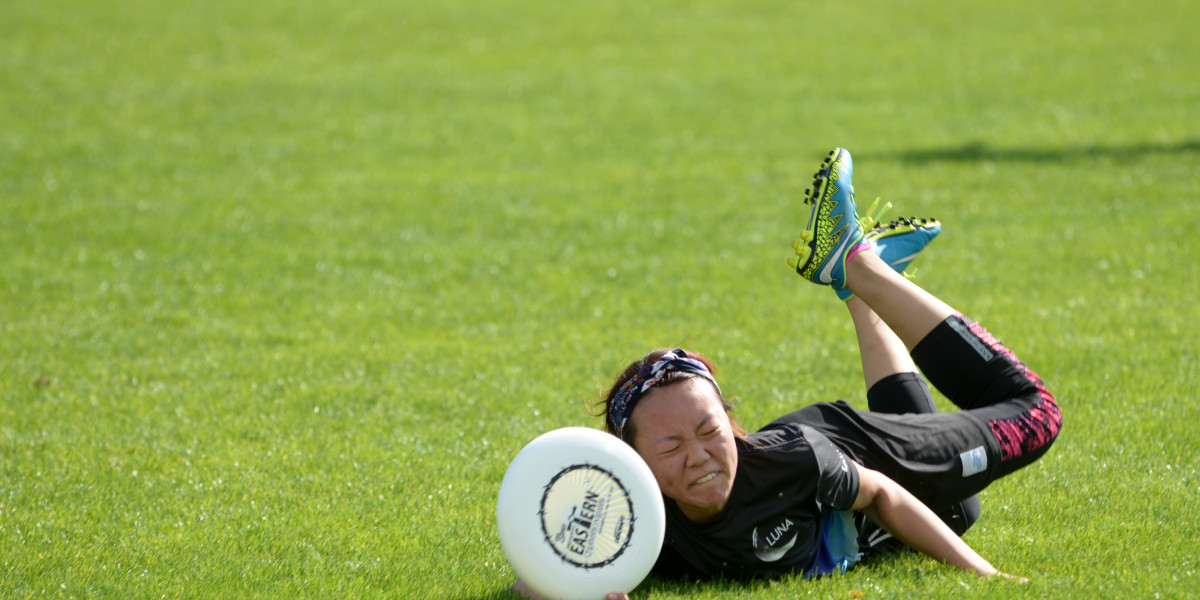 Billy Dzwonkowski - UltiPhotos.com
Billy Dzwonkowski - UltiPhotos.com
It’s mid-February. April tryouts are approaching faster than you expected. Perhaps you had great intentions for your new year’s resolution. But what happened? You’ve fallen off the wagon. If nothing changes you’ll be going into the season woefully unprepared.
You know you should be working out by now. How do you change your behavior to match your desires?
I am a pretty terrible motivational speaker. My favorite inspirational quote is, “Inspiration is for amateurs.” While I try to help all of my athletes be successful, I know that motivation must come from within and is usually temporary.
What I really believe is that habit trumps motivation and planning trumps inspiration.
If you really want to change your behavior, the best thing you can do is put systems in place that will allow you to more easily be successful whether you feel motivated on a regular basis or not.
As I think about creating systems to help my athletes be successful I rely a lot on the ideas from the book Influencer: The New Science of Leading Change by researchers Joseph Grenny and others.
The main premise is that willpower does not work. Trying harder is almost never the solution to enacting lasting changes. Willpower or personal motivation is just one factor that influences behavior. Grenny and his colleagues categorize influencers of behavior into six categories:
| Motivation | Ability | |
| Personal | 1. Personal Motivation (Willpower) | 2. Do you have the knowledge and skills required? |
| Social | 3. Social Motivation (Peer pressure) | 4. Social Ability (Do you know anyone who can help or mentor?) |
| Structural | 5. Structural Motivation (Does your environment encourage the desired behaviors?) | 6. Structural Ability (Does your environment support and enable the desired behaviors?) |
Let’s look at each of the categories in turn and think of how we can help ourselves achieve our goals this season. We’ll assume your goal is to get in shape and be more athletic for tryout time. But these principles will work for other goals like getting on a throwing practice plan, a game footage viewing schedule, mental toughness training, or something else.
- Personal Motivation – Otherwise known as willpower. Unfortunately this is where most people stop. Motivation IS important. A deep understanding of what you want and why you want it can make up for a lack of influence in the other categories. When this happens it’s inspirational to see. We love stories about the underdog experiencing triumph when all the odds are against them. But in real life, it makes more sense to stack the odds in your favor. So let’s look at some of the other influencers in your life.
Fixes: Game footage is great for motivation! Watch top teams execute at the highest levels. Or make time to read up on stories of athletes that inspire you.
- Personal Ability – Acquiring new habits usually involves acquiring new knowledge or new skills. If you want to be ready for tryouts in April, do you know what you should be doing between now and then? Do you have a plan or the skills required to create a plan? If you have a plan, do you understand it and know how to execute it?
Fixes: If you don’t know what to do, this is the most easy thing to outsource. Find a trainer to show you how to lift. Start with a free six week conditioning program if you’re just getting started or my twelve week program if a lack of knowing what to do it keeping you from your goals.
- Social Motivation – Are you surrounded by people who are encouraging and helpful? Or do your roommates convince you that because it’s raining you should binge on Netflix and stay comfy and warm instead of heading out to the gym?
Fixes: Have a conversation with your friends and roommates and let them know what you’re trying to accomplish.
- Social Ability – Do you know anyone who can help you? Does anyone you know have the knowledge you need? Do you know anyone who’s achieved what you’re trying to accomplish that you can look to for advice or mentorship?
Fixes: You may be surprised by how much others may be willing to help. Don’t be afraid to talk to the elite club players in your area and ask for tips or mentoring.
- Structural Motivation – Do you live near a gym or a field? Is your community conducive to living an active life or do you have to drive everywhere? How close are you to a grocery store with good vegetables versus a convenience store with junk food? Some of these variables may be the most difficult to change, but can have the strongest pull because the influence of your environment can remain subconscious. At the very least, become more aware of how your physical environment may influence your choices. If your place of work is closer to the gym, take and store some gym clothes there. Consider ease of access in addition to quality of equipment and trainers. A perfect gym that you never go to is less beneficial than a crappy gym that you hit up regularly.
Fixes: Aside from moving, this can be a difficult category to control. The best you can do is take some time to plan. What do you need to succeed? What’s the easiest way you can think of to get access to it?
- Structural Ability – Do you at least have the minimum facilities and equipment to enable the behavior you want? Is your training plan consistent with the equipment and time you have available?
Fixes: It’s important that you’re training plans and available equipment are aligned. If not, you will feel constantly frustrated. Design or find a program that fits with your available resources. Or create a plan to purchase or borrow what you need.
As you look at the influencer chart, know that it’s not necessary to have every box filled. However, four out of six categories working in your favor will give you a much higher chance of success than only filling out one or two.
If you have tried and failed at sticking to your training, maybe your first step to a more athletic self isn’t heading to the gym. Try taking 30 minutes today or tomorrow to fill in your categories of influence. A few small changes may be just what you need to make your tryouts successful.
Melissa recently gave a talk based on these concepts at the Rise Up Coaches Conference. If you enjoyed this article, keep an eye on the Rise Up website. The conference will be available online there soon!











Comments Policy: At Skyd, we value all legitimate contributions to the discussion of ultimate. However, please ensure your input is respectful. Hateful, slanderous, or disrespectful comments will be deleted. For grammatical, factual, and typographic errors, instead of leaving a comment, please e-mail our editors directly at editors [at] skydmagazine.com.